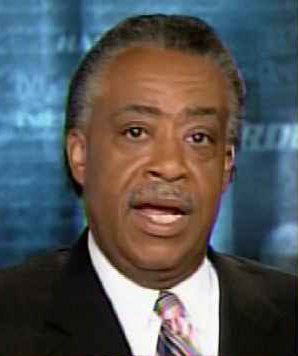
In a recent interview with Newsone, Rev. Al Sharpton laid out some of his divides with black intellectuals. The Rev seems to feel that many in “blackademia” are not comfortable with his approach to politics, and that the divide is becoming more apparent as time goes on. During the conversation, Sharpton had this to say:
“A lot of Blacks in the intellectual circles have a problem with me because of class issues,” Sharptonsays in the interview. “I was a college dropout with a James Brown hairdo. ‘He cant talk for us!’ I mean all of the arrogance! They want to speak about the proletariat but don’t want a proletarian leader!”
I listened to the words with interest, primarily because I think I might have enough education to be considered to be a part of the “black intellectual” class to which Rev. Sharpton is making reference. I suspect that Rev. Sharpton’s remarks are driven by the heated debate between he and Cornel West on MSNBC last week. There have been other incidents in the past, but in the age of Obama, almost nothing matters before 2008.
I’ll start by saying that I am in that group of black intellectuals who has no problem dealing with Rev. Sharpton. He and I talk on his show every Monday, and I find his commitment to action-oriented solutions to be refreshing and productive. Sharpton is correct that many of our most brilliant black scholars have been fooled into sitting around in their offices writing research papers that no one is ever going to read. The abandonment of our community by black intellectuals is one of the most appalling and wasteful examples of our community’s commitment to psychological slavery.
I respect Sharpton because he is bright enough to go toe-to-toe with the sharpest minds on the planet, yet tough enough to fight a gang banger in a dark alley. This kind of toughness reminds me of my father, who was a high-ranking police official in my hometown of Louisville, Kentucky. I’ve often felt that true intelligence means that you are able to adapt your mind to changing circumstances and manage a variety of complex environments. Also, a black man in America must be both sharp and strong in order to survive, with much of that education coming from outside the walls of any university.
With that said, I also wouldn’t consider Dr. Cornel West to be among the group of black intellectuals who has a problem with Rev. Sharpton, at least not in a normal political environment. How to best manage the Obama Presidency has become the sticking point for West and Sharpton, who’ve worked together in the past on numerous occasions. In contrast to his more elitist colleagues in the academy, Dr. West possesses an unquestionable commitment to serving black, brown and poor people across America. His most recent disagreement with Sharpton doesn’t come from the fact that he’s a scholar. It simply comes from the fact that black leaders don’t always think alike.
I’ve enjoyed all of my long conversations with Rev. Sharpton, where he articulates interesting and insightful views on everything from politics to pop culture. I learn from our interactions and find them to be productively engaging. One thing I remember from our conversations is Rev. Sharpton’s insistence (which he mentions regularly during our radio segments), that black leaders are not always on the same page. Going back to the divide between Dr. King and Malcolm X (among others), black leadership has shared the common interest of uplifting our people, and have often disagreed on how to get it done.
The most critical fact about the recent divide between West and Sharpton is that the divide must be managed respectfully and productively. By referring to Rev. Sharpton as Obama’s black political “mascot,” Professor West opened a door of “hood fight whoop-ass” that Sharpton preserves for those who’ve come to attack him. He didn’t become the man that he is without learning how to fight. I don’t, in the least, blame Sharpton for engaging in a fierce counter-attack on West both during the segment and later in other media outlets. At the same time, I am sure that Rev. Sharpton understands that black leaders can disagree with him and still have legitimate viewpoints, as even I have disagreed with Rev. Sharpton on his show on multiple occasions. As Malcolm and Martin learned toward the end of their lives, it is important that we understand the importance of learning to disagree without working our way toward mutual self-destruction.
Both Sharpton and West are keenly aware of the importance of preserving the bigger picture. Advocating for our community is what matters most, and in that regard, they are both on the same page perpetually.

No comments:
Post a Comment